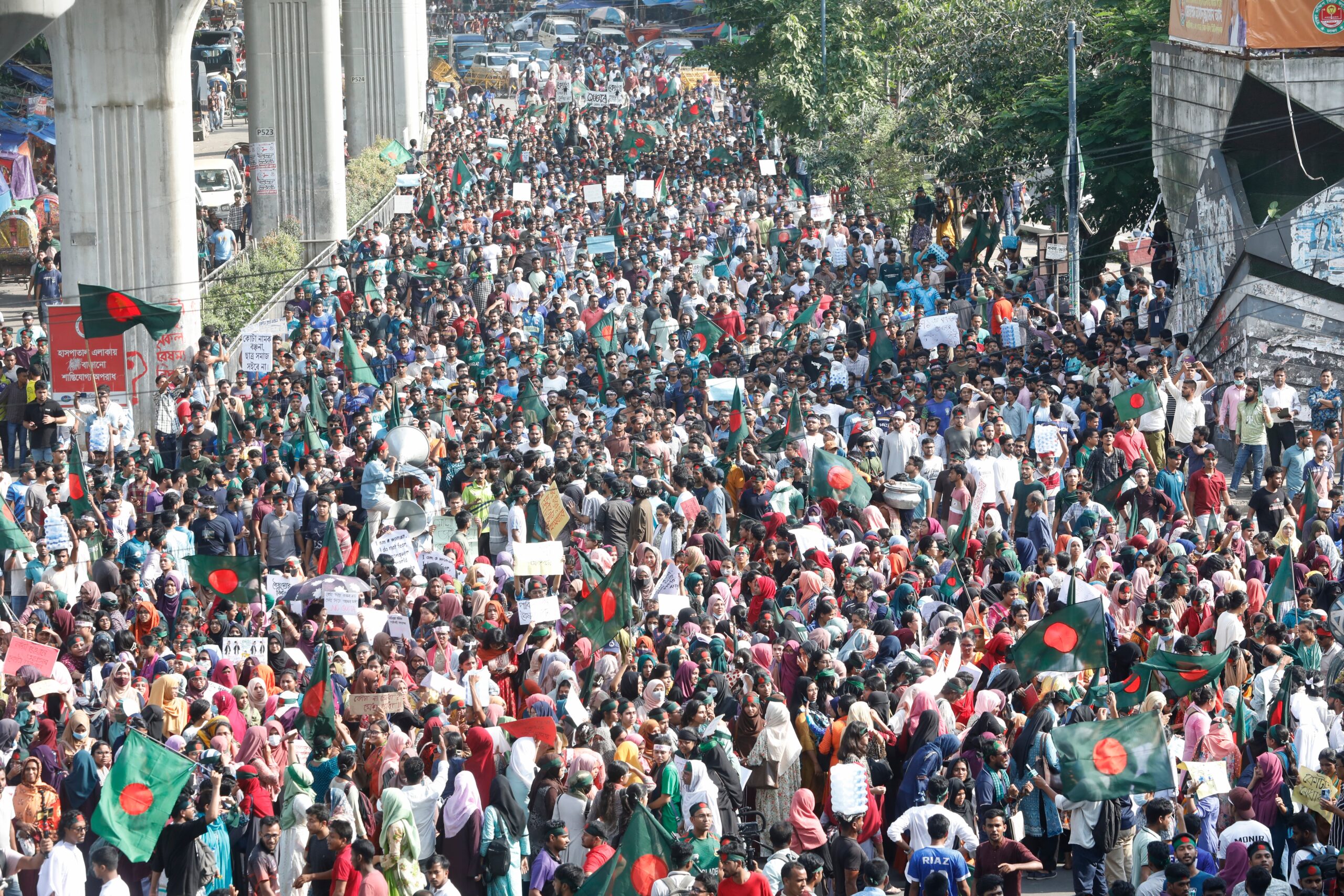
The successful 1979 Iranian working-class struggle against the monarchical dictatorship was eventually snatched away from people and hijacked by reactionary religious forces, with the covert support of imperialist and colonial powers led by the CIA. The progressive character of the Iranian people’s struggle for freedom and justice gradually faded, giving way to the rise of reactionary ruling elites who concealed their power in the name of religion and nationalism. This political and economic transition has not only betrayed the aspirations of the Iranian working people but also set the stage for a repressive regime that continues to dominate the social, economic and political landscape of the country till today.
The successful mass uprising in Bangladesh, led by students, against the corrupt, nepotistic, and authoritarian government of Sheikh Hasina stands as a powerful testament to the power and resilience of democratic struggles. The Sheikh Hasina regime was challenged with widespread anger and legitimate grievances and protests from the Bangladeshi people. Her regime was unpopular among the masses. In response, her government resorted to highhanded tactics, attempting to suppress the dissent by using state police and military forces. Thousands of people were killed, injured, and unlawfully arrested by the Hasina government. However, these repressive actions only fuelled the resistance, finally culminating in the regime’s downfall and forcing Sheikh Hasina to resign and go into exile.
The organised violence, killings, looting, and arson targeting religious minorities and political opponents undermine and destroy the hard-earned democratic achievements of the Bangladeshi people. These actions not only threaten the fabric of the nation’s democracy but also erode the progress made toward a more just and inclusive society following the 1971 struggle for independence. Such acts of violence jeopardise the principles of equality and freedom that were foundational to Bangladesh’s emergence as an independent nation.
The rise and consolidation of religious reactionaries following the successful removal of the Hasina government has led many political commentators to predict and conclude that Bangladesh is heading down a path like that of Afghanistan, Pakistan, or Sri Lanka. This comparison reflects concerns that the country’s political instability and the rising influence of extremist elements could lead to a further erosion of democratic values and social cohesion. Such a trajectory might result in prolonged conflict and a deterioration of law and order, eventually undermining the economic development that Bangladesh has previously achieved.
The mass violence and anarchy witnessed in Bangladesh following the fall of the Hasina regime in 2024 bear striking similarities to the collapse of the Shah regime in Iran in 1979. Both situations are marked by intense upheaval and disorder, reflecting the profound instability that often accompanies the transition from an entrenched authoritarian regime to a reactionary, religious, regressive and undemocratic political order. Such a transition neither deepens democracy nor serves the interests of the working people in Bangladesh. It often aggravates existing problems and creates new challenges, undermining the potential for genuine democratic and social progress. Without a clear, inclusive vision for governance and reform, these riotous periods can hinder rather than advance the cause of justice and equitable development.
Military rule is not an option. It is against the very foundation of Bangladesh as a modern, secular and democratic nation. The future of democracy and secularism in Bangladesh hinges on the nation’s unwavering commitment to defeating all forms of Islamic fundamentalism and other reactionary forces. The success of this struggle will be crucial in shaping a more inclusive and progressive society, ensuring that Bangladesh remains a nation where democratic values and secular principles are upheld and protected. The future of Bangladesh stands on its unwavering commitment to maintaining its progressive and secular linages. These foundational principles are central for nurturing a stable, inclusive, and prosperous society in Bangladesh.
